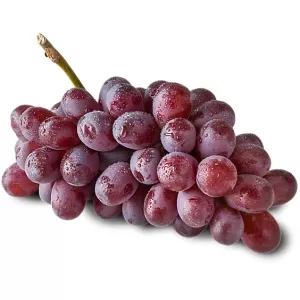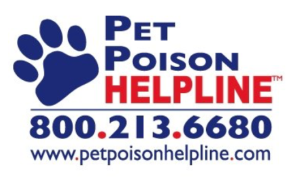Grape, Raisin, and Currant Toxicity in Dogs
For over 20 years, veterinarians have known that grapes, raisins, and currants are toxic to dogs. Although the reasoning behind the toxicity is still unknown, it is imperative to know that even one grape can lead to serious illness in our dogs.
WHAT TYPES OF GRAPES ARE TOXIC?
There are many different types of grapes and raisins that can cause toxicity in dogs. The grape vine (also known as the Vitis species) is found to cause kidney failure. There are a variety of food items that are commonly found in the household that contain grapes or raisins – including bran cereal, trail mix, or baked goods.

WHY ARE THEY TOXIC?
The information regarding why these fruits are toxic to our dogs is currently unknown. Some researchers suspect that grapes and raisins contain a mycotoxin, which is a toxin produced by a fungus or a mold. Other researchers suspect that grapes contain a salicylate drug (a drug that is found in aspirin) that can decrease blood flow to the kidneys and cause toxicity. More recently, tartaric acid has also been considered as a potential cause. Unfortunately, there is still no specific toxic agent that has been identified to cause toxicity.
WHAT IS THE TOXIC DOSE?
Since the cause of grapes being toxic is unknown, so is the toxic dose. What we do know from research is that dogs are more likely to become poisoned if they ingest large amounts or grapes or raisins. There is also a significant individual sensitivity dependent on specific dog breeds. This means that there is a variability in toxicity dependent on the individual dog, but the current research does not give us a way to predict which dogs may be more sensitive to the toxicity.

WHAT DO I DO IF MY DOG EATS GRAPES?
Since the information and research behind why grapes are toxic to dogs is very limited, if you believe your dog has eaten even just one grape, raisin or currant. or something containing these fruits, contact your veterinarian as soon as possible. If it is after hours, go directly to a 24 hour emergency facility. With any sort of potential poisoning, it is of the utmost importance to act fast. The sooner that the poisoning is diagnosed and treated, the less likely that more invasive medical intervention would be needed.
WHAT ARE THE SYMPTOMS?
Within 24 hours after consumption, the symptoms of grape toxicity can include vomiting, inappetence, lethargy and diarrhea. The more severe signs of grape toxicity are normally not seen for 24-48 hours post ingestion. This is during the time that acute kidney failure has already started to take effect. Signs of acute kidney failure include nausea, inappetence, abdominal pain, excessive thirst or excessive urination. As the poisoning continues, the kidneys may begin to shut down causing the pet to no longer be able to produce urine. Their blood pressure then increases and they can often fall into a coma. At this point in the poisoning, the prognosis is poor.
HOW DO WE TREAT?
If the poisoning is caught early enough, treatment can then block the absorption of the poison and prevent kidney failure. There is unfortunately no antidote to the poison. Depending on the length of time between the ingestion and the start of treatment, inducing emesis (vomiting) and administering activated charcoal is one way to block the poison from absorbing into the intestines and the stomach. Bloodwork would also be obtained in order to monitor kidney values. After that, intravenous fluids are used to vigorously flush out the remainder of the toxin and to help keep the kidneys functioning properly. The treatment can include hospitalization for the dog for 24-48 hours. With this hospitalization, the dog will be monitored with blood pressure and given anti-nausea medication. Once your dog is stable and back home, follow up bloodwork would be necessary in order to ensure that the kidneys are functioning properly.
HOW CAN I PREVENT?
Keep all grapes, raisins, currants, and all foods containing these fruits out of reach of your pets or out of your house entirely.
WHAT ARE OTHER COMMON FOODS THAT ARE TOXIC?
Foods containing the artificial sweetener xylitol, onions, alcohol, chocolate, and macadamia nuts can be fatal to dogs. Learn more about xylitol toxicity in our blog here: Xylitol Toxicity Blog
WHAT ABOUT CATS OR POCKET PETS?
The research indicates that grapes and raisins are only toxic to dogs as of right now. There have been informal reports of cats and ferrets having negative side effects to these fruits but there is no known research done as of right now.
Pet Poison Helpline is an animal poison control service available 24 hours, seven days a week for pet owners and veterinary professionals who require assistance treating potentially poisoned pets. Their phone number is 800-213-6680 and their website is www.petpoisonhelpline.com.

IMMEDIATE MEDICAL CARE CAN SAVE LIVES
If you suspect your pet has eaten a xylitol containing product, please contact your veterinarian immediately.
If your veterinarian is unavailable please call a poison helpline and bring your pet to a 24 hour veterinary emergency center.
Animal Poison Control: 888-426-4435

Pet Poison Helpline: 800-213-6680










Leave A Comment